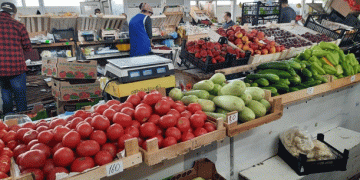The Sverdlovsk Region government has unveiled a proposal to exempt vegetable and root crop producers from paying the single agricultural tax (EAS) from 2025 to 2027. The move, aimed at supporting farmers in the region, targets those who produce vegetables, melons, root crops, and tubers. According to the regional information portal, this initiative comes as part of an effort to promote the growth of local agriculture and enhance the productivity of the farming sector.
Ruslan Sadykov, the region’s Minister of Economics and Territorial Development, clarified that this exemption would apply to producers whose income from agricultural sales accounts for at least 50% of their total revenue. The rationale behind this policy is to alleviate some of the financial burdens on farmers, enabling them to reinvest in their operations, particularly in purchasing certified seeds and materials, as well as building irrigation systems to improve crop yields.
This proposal is seen as a critical measure to stimulate agricultural innovation and growth. By reducing tax obligations, the regional government hopes to encourage farmers to adopt modern farming techniques, such as drip irrigation and crop diversification, which are known to increase both productivity and sustainability in agriculture.
Recent studies and trends in Russian agriculture underscore the importance of such initiatives. According to the Ministry of Agriculture, Russian vegetable production has been growing steadily, but the sector still faces challenges, such as climate change, soil degradation, and the need for modernization. For instance, in 2023, Russia’s vegetable production reached over 13 million tons, but the demand for technological upgrades in farming practices remains high. Exempting farmers from taxes will likely facilitate investments in advanced agricultural technologies, making farming more efficient and sustainable in the long term.
Additionally, experts from the Russian Academy of Sciences highlight that irrigation systems are a key factor in increasing crop yields, especially in regions with water scarcity issues. By providing tax incentives, the government could accelerate the adoption of such systems, which are crucial for mitigating the effects of droughts and ensuring food security.
The tax relief proposal for vegetable and root crop producers in Sverdlovsk is a promising step towards strengthening the local agricultural sector. By easing financial pressures, farmers will be better positioned to invest in modern technologies, improve crop productivity, and contribute to the region’s overall economic development. This initiative may serve as a model for other regions looking to support sustainable agricultural practices while boosting local food production.































